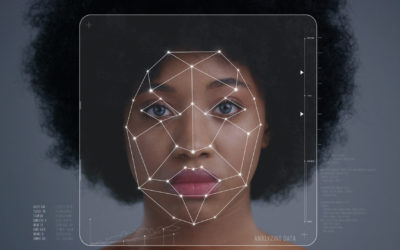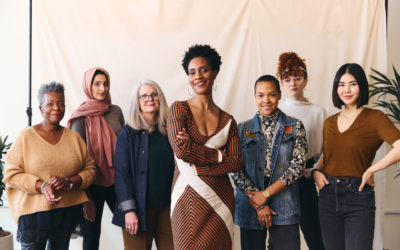Picture a chessboard. At its center, two pieces stand mirrored, symbolizing the strategic interplay of equity and inclusion, the key tenets of social justice. They are not adversaries but companions, similar to corporations in the ‘Social’ aspect of ESG (Environmental, Social, Governance). Just as chess pieces secure the board while leaving room for each other, corporations, and indeed individuals, must balance their differences against the shared objective of breaking systemic barriers to foster belonging. This isn’t a game of confrontation but collaboration, a dance towards a strong ESG performance through an ensemble of equity, inclusion, and belonging.
You may be wondering, why am I talking about chess and its pieces. And most importantly, why am I comparing this to Equity and Inclusion and ESG goals and objectives. Well, I can see similarities between the transformation of individuals and corporations striving for a more equitable society, to that of a complex chess game. We’ve observed various moves: the commendable, the regrettable, and the all-too-common neutral, which often appears performative rather than genuinely impactful. Think “Queen of Katwe”, a 2016 biographical drama directed by Mira Nair, and “The Queen’s Gambit”, a 2020 mini-series based on Walter Tevis’s 1983 novel.
Allyship, much like a strategic chess game, is a complex tool propelling us towards social justice. Moving through this terrain, both historically and in modern times, is reminiscent of careful chess maneuvers. Just as chess players protect their pieces while keeping their end goal in mind, so too must we navigate allyship. Remember, even the most well-intentioned actions can sometimes unintentionally muffle the voices they aim to elevate—similar to a hasty move in chess disrupting the overall game.
A case in point is the situation Target faced this June. They faced hurdles with their Pride merchandise, resulting in the withdrawal of some LGBTQ+ produced merchandise due to threats from individuals opposed to LGBTQ+ rights. This decision could potentially impact Target’s long-standing reputation as a stalwart ally to the LGBTQ+ community, which has been nurtured since the early 2000s, when they began incorporating LGBTQ+ inclusive elements into their advertising. This is a good reminder to us all that in allyship, every move and decision made presents an opportunity for learning and growth towards more effective strategies in the future.
The path to genuine allyship, like mastering chess, requires strategy, open-mindedness, and a dedication to continuous learning.
For instance, virtue signaling, the adversary in our social justice narrative, refers to superficial allyship gestures without meaningful action; much like making an impressive move in chess that does little to advance the game.
The Path to Genuine Allyship
As we embark on a journey toward genuine allyship and away from performance, there are practices we will have to learn and unlearn.
Don’t Trivialize
We must tread cautiously to avoid unintentionally trivializing others’ experiences. When we rush to correlate someone else’s pain or challenges with our own experiences, we can inadvertently diminish the uniqueness and magnitude of their struggle. Consider this in the context of a chess game. Suppose you quickly move your pawn in response to an opponent’s knight maneuver without fully understanding the strategic depth behind their move. In that case, you might risk compromising your position or overlooking a significant threat. Similarly, when we hurriedly equate someone’s unique experience with our own, we risk oversimplifying their situation and, as a result, unintentionally dismissing their experience.
Don’t Be Dismissive
Imagine being in a meeting where a colleague expresses the need to enhance disability accessibility in hiring practices. However, another team member dismisses this proposal, citing past unsuccessful attempts or even personal experiences, such as, “I have a disability and I was able to find work.”
In this context, the colleague’s call to discuss improved accessibility represents an essential move toward fostering a more inclusive and diverse work environment. Yet, the dismissal of this conversation not only underestimates the importance of this topic but also obstructs collective progress toward building an equitable workplace.
This form of dismissive remark, particularly if based on personal experiences, risks oversimplifying a complex issue. Just because one individual with a disability has succeeded doesn’t mean all barriers have been removed for everyone else.
Engaging in these conversations and acknowledging their importance is crucial to driving meaningful change in the workplace. Such dialogues can illuminate areas of growth, leading to a more inclusive and welcoming environment for all.
Not acknowledging the significance of these discussions on allyship not only fails to appreciate the gravity of the issue but also hampers our collective progress towards achieving social justice.
Be Mindful
The Great news is, every individual has the potential to influence allyship’s narrative! It demands mindfulness, openness to learn, and commitment to transition from hollow gestures to authentic allyship. It is imperative to appreciate each unique experience we aim to support.
The Evolution
As 2023 unfolds, our understanding and practice of allyship continue to evolve in tandem with the ever-changing cultural, social, and political landscape. Drawing from Jeannie Gainsburg’s enlightening book “The Savvy Ally: A Guide for Becoming a Skilled LGBTQ+ Advocate”, we explore how allyship concepts are being reshaped across the world. (2020).
Consider the dawn of social media platforms and how it has expanded our understanding of allyship. But then again, with all progress, comes new challenges. How do we continue being effective allies? (Actively combating injustice instead of merely voicing support).
Gainsburg emphasizes the move from performative allyship to actionable allyship. Drawing from Gainsburg’s insightful work, the journey to becoming a skilled ally can be distilled into several key, actionable steps:
- The Transition from Performative to Actionable Allyship: Move beyond merely expressing support or making symbolic gestures. Implement concrete actions that fight against injustice and inequality.
- Embrace Intersectionality: Understand and acknowledge the unique challenges faced by individuals who belong to multiple marginalized identities. Allies should recognize these complexities and advocate accordingly.
- Commit to Continuous Learning and Unlearning: Educate yourself about the experiences and challenges of marginalized communities. Simultaneously, unlearn biases and prejudices while fostering empathy.
- Understand and Address Microaggressions: Gain insight into the subtleties of harm, such as dismissing someone’s experience by saying, “I am underrepresented too, so your experience is no different.” or attempting to play a neutral role, which can perpetuate harm indirectly.
Concluding Thoughts
Gainsburg states allies must continuously learn and unlearn, educating themselves about marginalized communities’ experiences, shedding biases, and cultivating empathy. This process includes understanding microaggressions, subtle actions, or phrases that can perpetuate harm.
The landscape of allyship is shifting dynamically. Legislation changes, social media content, and conversations surrounding underrepresented communities all highlight the rising significance of systemic allyship. This concept urges individuals to harness their influence to initiate change within their organizations and industries. Moreover, the scope of allyship is broadening to include global concerns, transcending national borders, and embracing a more global perspective. This is especially evident in the extensive use of platforms like Twitter and TikTok to raise awareness and advocate for global issues. As we venture into this ever-evolving future, agility, open-mindedness, and self-reflection are key. The future not only encourages this but indeed, calls for it.
As we venture into an ever-evolving future, let us draw inspiration from the narratives of “The Queen’s Gambit” and “Queen of Katwe.” Just as the chess pieces on the board move strategically, so too must we adapt with agility, embrace an open-minded perspective, and engage in meaningful self-reflection. The call for progress echoes loudly, urging us to embody the qualities of the future ally: adaptive, intersectional, proactive, and committed to personal and collective growth. Together, we redefine allyship as a transformative journey intricately woven with the socio-political nuances and the intricate tapestry of the human experience. No longer confined to the sidelines, allyship propels us toward an equitable future where every voice is valued.
We have work to do, so let’s do it together!
ABOUT THE AUTHOR

Les is the DEI Director of Creative Design & Strategy at DEI & You Consulting. As well as a DEI Consultant and Facilitator and have training in Diversity & Inclusions in the Workplace from ESSEC focusing on international businesses.
Les’s training also includes an International MBA, specializing in International Strategy and Digitalization, from emlyon business school in Ecully, France. A law degree and a bachelor’s degree in English Literary Arts.
Les Williams has a passion for topics in gender equality and LGBTQ+ advocacy. Les shows this passion through their work spreading information and resources to individuals as well as in helping businesses create sustainable practices that contribute to society and the environment.
Contact Les at DEI & You Consulting and let’s see how they can help you reach your business goals!
Navigating DEI in Tech: 4 Steps Towards Ethical Algorithms and Inclusive Data Privacy
In our fast-paced, technology-driven world, personal data has become a hot topic. Every click, every purchase, every post - they all...
Maximizing DEI Metrics: 5 Ways to Elevate Your DEI Strategy Through Data Collection
Four ascending bar graphs measuring the DEI metrics of your organization When diversity, equity, and inclusion (DEI) work is...
From Women’s History to Diversity Month: Unraveling 7 Behaviors Challenging DEI Initiatives & 5 Steps to Empower Inclusive Workplaces
As we conclude Women's History Month, a period dedicated to honoring the outstanding accomplishments of women from all walks of life,...
Navigating DEI in Tech: 4 Steps Towards Ethical Algorithms and Inclusive Data Privacy
In our fast-paced, technology-driven world, personal data has become a hot topic. Every click, every purchase, every post - they all...




